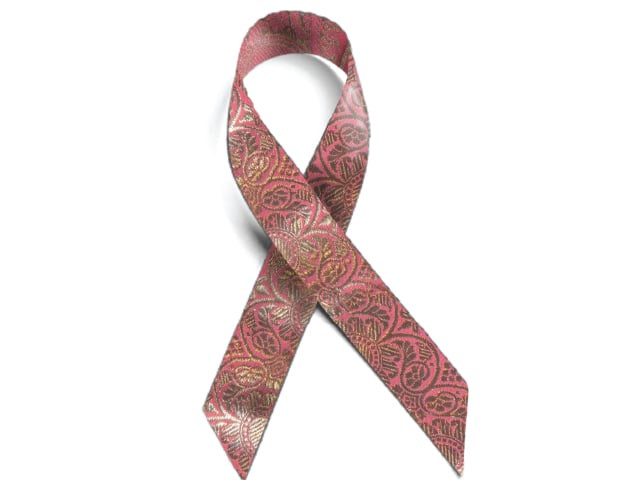Breast cancer: Catch it before it gets you
According to a survey conducted by PRC, Pakistan has the highest rate of breast cancer from all Asian countries.

Breast cancer: Catch it before it gets you
“I was very lucky and I cannot thank God enough for His blessings,” she says, brimming with confidence and optimism over battling the menace. “I get scared when I go for my annual check-ups in case there is a relapse, but I have faith in God. You have to believe that He will save you.”
Unlike cervical cancer, there is no primary preventive method for breast cancer. Not having children at all and having a first full-term pregnancy after the age of 30 may increase a woman’s chances of developing the cancer. Women with a family history of breast cancer are also at high risk. Patients who are diagnosed with breast cancer can choose between chemotherapy, radiotherapy and surgery, although surgery is an aggressive form of treatment suited to those who have hereditary breast cancer.
“The most basic form of chemotherapy for one patient can cost as much as Rs60,000 to Rs80,000, so early detection can reduce costs. The cost deters patients from low-income families from seeking treatment,” says Dr Shaista Khan, the well known professor of surgery and chief of the breast unit at Aga Khan University Hospital in Karachi.
According to a survey conducted by the Pink Ribbon Campaign (PRC) Pakistan, we have the highest rate of breast cancer from all Asian countries. Statistics show that one out of nine women in Pakistan is at high risk of getting breast cancer at some point in her life. There are over 40,000 reported deaths every year.
Despite the alarming figures given by institutions such as the PRC, Pakistan does not have a national cancer registry that collects official data and statistics, making it difficult to conduct research and development that will help the fight against breast cancer. “We badly need national figures,” says Dr Khan, adding that statistics provided by institutions should not be mistaken for national figures. Although the cancer itself cannot be prevented, she says, breast cancer mortality can be reduced by 30 per cent in women over the age of 50 years if it is diagnosed and treated at an early stage, a major reason for why awareness campaigns should be promoted. Dr Irfan Daudi at AKUH says that if breast cancer is detected at an early stage by conducting a mammogramme, it is almost 100 per cent curable. At Jinnah Postgraduate Medical Centre and at Civil hospital, a mammogramme is free of charge while at the AKUH it costs Rs4,700 per scan.
“In the last few years we have tremendously gained accessibility though the media; most women learn about it from programmes on TV and get themselves checked if they find unusual lumps in their breasts,” says Dr Khan, stressing that it is unwise to instill a sense of fear in the patient, but to create awareness that women above the age of 30 should go for annual check-ups.
Buy a necklace, fight cancer
The Shaukat Khanum Memorial Cancer Hospital and Research Centre is selling necklaces with pink ribbon charms, the proceeds of which are donated to cancer research. Shaukat Khanum is spreading awareness about breast cancer by distributing self-examination pamphlets and breast cancer awareness leaflets as well.
The PRC in collaboration with the Pakistan Atomic Energy Cancer Hospitals is launching the Free Nationwide Breast Cancer Screening Programme from Oct 25 to Oct 27 (Mon-Wed), which will include public awareness seminars, free clinical examinations and a free mammogramme screening for women. Their objective is to create widespread awareness about breast cancer and its high incidence, severity leading to fatality, impact on the life of the sufferer and the family and also spreading the good news that if detected early, the cancer can be cured.
Published in The Express Tribune, October 25th, 2010.
This article has been revised to reflect the following correction:
Correction: October 25, 2010
Due to a reporting error, the figure for a mammogramme at AKUH was cited as Rs2,000. It is Rs4,700.



















COMMENTS
Comments are moderated and generally will be posted if they are on-topic and not abusive.
For more information, please see our Comments FAQ